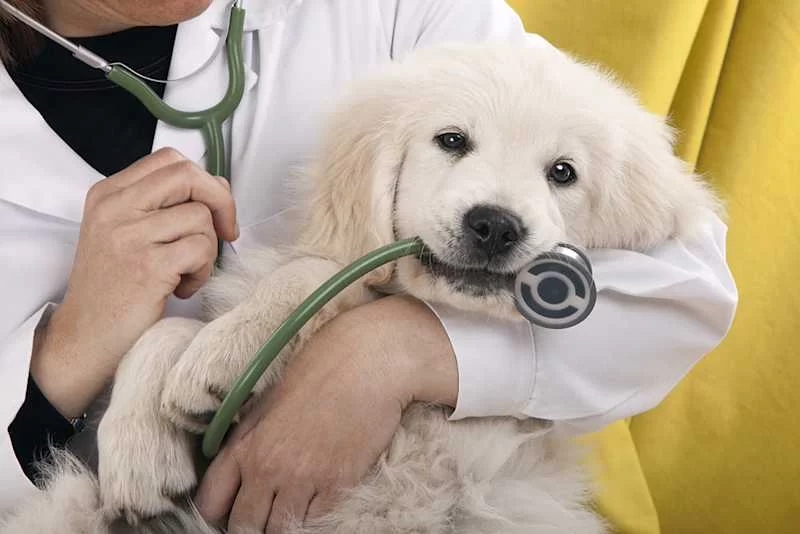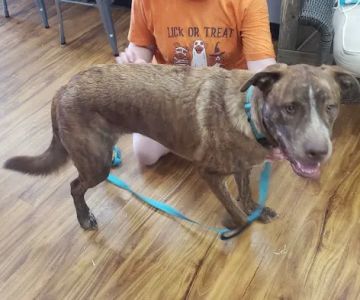Preparing Your Pet for Their First Vet Visit: A Pet Owner’s Guide
As a pet owner, one of the most exciting yet nerve-wracking experiences is taking your furry friend to the vet for the first time. Whether you’re a new pet parent or have had pets in the past, the first vet visit can be an emotional journey for both you and your pet. But don’t worry! With a little preparation, you can ensure that the visit goes smoothly, and both you and your pet leave feeling comfortable and confident in the care your pet is receiving.
1. Understand Why Vet Visits Are Important
The first thing to remember is that vet visits are essential for your pet's health and well-being. Just like humans need regular check-ups, pets also require routine health assessments to ensure they are happy and healthy. Your first vet visit is the foundation for establishing a relationship between your pet and the veterinary team. It’s where your pet will get their initial wellness exam, vaccinations, and advice on proper care, such as diet and exercise.
It’s also an opportunity for you to ask any questions you might have regarding your pet’s development, behaviors, or medical concerns. So, while it can be a bit intimidating, the first vet visit is an important step in keeping your pet safe and healthy.
2. Choosing the Right Veterinary Clinic
One of the first things I did when I got my dog, Bella, was find a vet I could trust. Not all vet clinics are the same, so it’s important to do a little research before your pet’s first visit. Ask friends, family, or neighbors for recommendations. Look for a clinic that is clean, welcoming, and offers comprehensive services. Many clinics will even offer a "meet and greet" with the vet or staff before your pet’s first visit so that you can get to know them and feel comfortable with your choice.
Check online reviews and ensure the clinic is accredited by the American Animal Hospital Association (AAHA), which guarantees the clinic meets certain high standards of veterinary care. Trusting your instincts is key—if something doesn’t feel right during your visit, don’t hesitate to keep looking until you find the right fit.
3. Preparing Your Pet for the Big Day
Now that you've chosen your vet, it’s time to prepare your pet for the visit. If your pet is young and hasn’t had much exposure to new experiences, they might feel anxious about being handled by strangers. To make the experience less stressful, start preparing your pet in advance. Here are some tips:
- Get Your Pet Used to Their Carrier or Leash: If your pet will be traveling in a carrier, allow them to explore it a few days before the visit. Place treats and their favorite toys inside to make it a positive experience. For dogs, get them used to walking on a leash if they haven’t already been trained. A walk to the vet’s office can serve as a good introduction.
- Practice Handling Your Pet: Familiarize your pet with the vet-like handling at home. Gently touch their paws, ears, and mouth, and get them used to being touched in places the vet will examine. This can help reduce their anxiety when the time comes.
- Maintain a Calm Attitude: Pets are sensitive to our emotions. If you’re nervous, your pet might pick up on that and become anxious themselves. Stay calm and positive during your preparation and the vet visit.
4. What to Expect at Your Pet’s First Vet Visit
When you finally arrive at the vet, expect a thorough examination. The vet will check your pet’s weight, temperature, heart rate, and overall health. For puppies or kittens, the vet will likely administer vaccinations to protect against common diseases. They may also discuss the best diet for your pet’s age and breed, as well as suggest any preventive care such as flea or tick treatments.
At this point, I remember Bella was a bit nervous, but she calmed down as the vet was gentle and spoke to her in a soothing voice. The entire process, though a little overwhelming for her, was over before she knew it, and I left with a better understanding of how to care for her. The vet will also provide guidance on future visits and any upcoming treatments your pet may need, so be sure to take notes and ask questions if you’re unsure about anything.
5. Reducing Your Pet’s Anxiety
It’s not uncommon for pets to feel anxious or scared during their first vet visit. Some pets may shake or try to hide, while others might vocalize their discomfort. Here are a few tips to help reduce your pet’s anxiety:
- Use Calming Products: There are various calming products available, such as pheromone sprays and calming collars, that can help soothe your pet before and during the visit.
- Bring Familiar Items: Bring along a favorite blanket or toy to provide comfort and familiarity in an unfamiliar environment.
- Take Your Time: If possible, arrive early to allow your pet to acclimate to the surroundings. Don’t rush the process; give your pet time to settle down.
6. The Importance of Regular Vet Visits
Your pet’s first vet visit is just the beginning of an ongoing journey to maintain their health. Regular check-ups help ensure that any potential health issues are detected early, and that your pet is up to date on vaccinations and preventive treatments. As pets age, they may require more frequent visits to manage their health, so it’s important to continue building a relationship with your vet.
After Bella’s first visit, I made sure to schedule follow-up appointments for her vaccinations and wellness exams. Over time, she became more comfortable with the vet, and I gained confidence in the care she was receiving. These regular visits also provided me with peace of mind knowing that Bella was healthy and thriving.
7. Final Tips for a Successful Vet Visit
To wrap up, here are a few final tips to ensure that your pet’s first vet visit is a positive experience:
- Bring Medical Records: If you adopted your pet from a shelter or breeder, make sure to bring any medical records you have, including vaccination history.
- Prepare Questions: Write down any questions or concerns you might have about your pet’s health, behavior, or development. This is the perfect opportunity to ask the vet for advice.
- Follow Up: If your vet recommends any treatments or follow-up visits, be sure to schedule them as soon as possible.
Remember, taking your pet to the vet is an essential part of being a responsible pet owner. With proper preparation and a calm attitude, your pet’s first visit will be a positive and stress-free experience. If you're looking for a trusted veterinary clinic for your pet, I highly recommend exploring options like Hidden Brook Veterinary, which offers excellent care and a welcoming atmosphere for both you and your pet.












